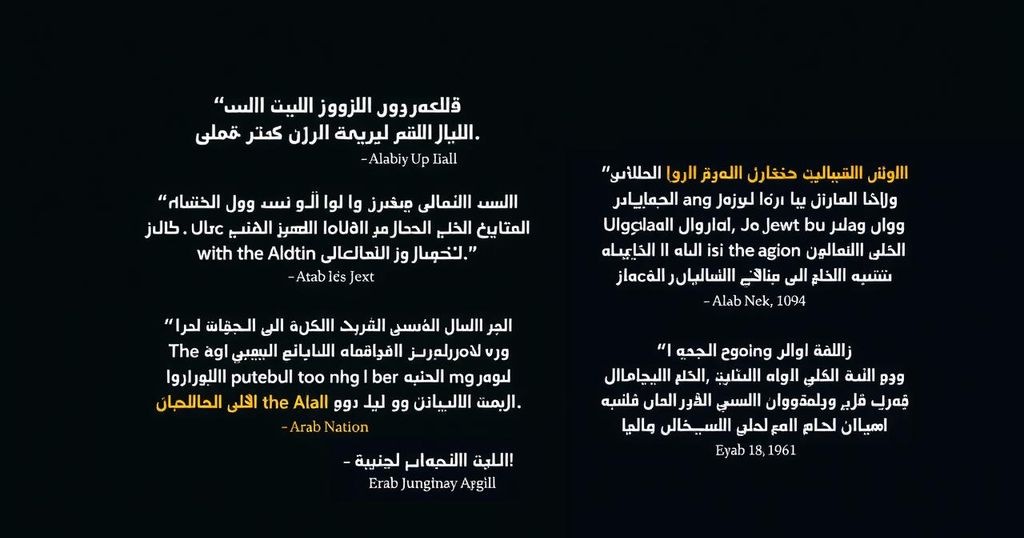Arab Nations Call for Restraint Following Israeli Strikes on Iran
Israel’s attack on Iranian military sites has prompted strong condemnation from Arab nations, leading to widespread calls for restraint amid fears of escalating conflict in an already tense Middle Eastern landscape.
On the morning of October 26, 2024, Israel conducted strikes on military locations in Iran, notably avoiding key oil and nuclear facilities. In response, numerous allies and nations within the Middle East have urged restraint from both parties, as the escalating situation raises the specter of a broader conflict amidst already heightened tensions due to continued hostilities in Gaza and Lebanon. The Israeli military has claimed responsibility for the attacks, which involved multiple assault waves aimed at missile facilities and other strategic sites. They warned Iran against any retaliation. Reactions from Arab nations reflect a consensus on the necessity for de-escalation: Saudi Arabia condemned the Israeli operations as a breach of Iranian sovereignty and a contravention of international law. A statement issued by the Saudi Press Agency emphasized their commitment to regional stability and a call for all stakeholders to exercise restraint: “The Kingdom reaffirms its firm stance against the ongoing escalation in the region and the expansion of conflicts that threaten the security and stability of countries and communities in the region, urging all parties to exercise full restraint and reduce escalation.” United Arab Emirates expressed similar sentiments, denouncing the military actions targeting Iran and expressing grave concerns regarding the ramifications for regional security: “The UAE strongly condemns the military targeting against the Islamic Republic of Iran and expresses deep concern over the ongoing escalation and its impact on regional security and stability.” Iraq condemned the Israeli attack while simultaneously calling for a ceasefire in Gaza and Lebanon, labeling Israel’s actions as an extension of its aggressive stance within the region. Qatar, acting as a mediator in the Gaza conflict, articulated its apprehension regarding the serious implications of Israel’s aggression towards Iran. Oman acknowledged the attack as a catalyst for further violence which jeopardizes de-escalation efforts, insisting that global entities must intervene to halt such violations. Syria publicly voiced its allegiance with Iran, asserting its right to defend its territory. Jordan categorized the Israeli assault as a violation of international law and sovereignty, calling for immediate actions from the global community to mitigate the ongoing aggression in Gaza, the West Bank, and Lebanon, which it sees as integral to the efforts for de-escalation.
The recent attack by Israel on Iran has escalated already existing tensions in the Middle East, a region that has faced multiple conflicts, particularly in Gaza and Lebanon. This development arises against a backdrop of intensified military interactions and the precarious nature of Iranian-Israeli relations, which have long been characterized by hostility. Regional stakeholders, particularly Arab nations, have expressed concerns that such actions could spiral into a more significant conflict, necessitating a collective call for restraint to preserve stability across the region.
The responses of Arab nations to Israel’s recent military actions against Iran underline a widespread call for restraint and recognition of sovereignty. The situation remains fraught with potential for escalation, and the importance of diplomatic dialogue is paramount to prevent further conflict. The responses reflect a unified stance among Arab states advocating for peace and stability in a historically volatile region.
Original Source: en.tempo.co




Post Comment